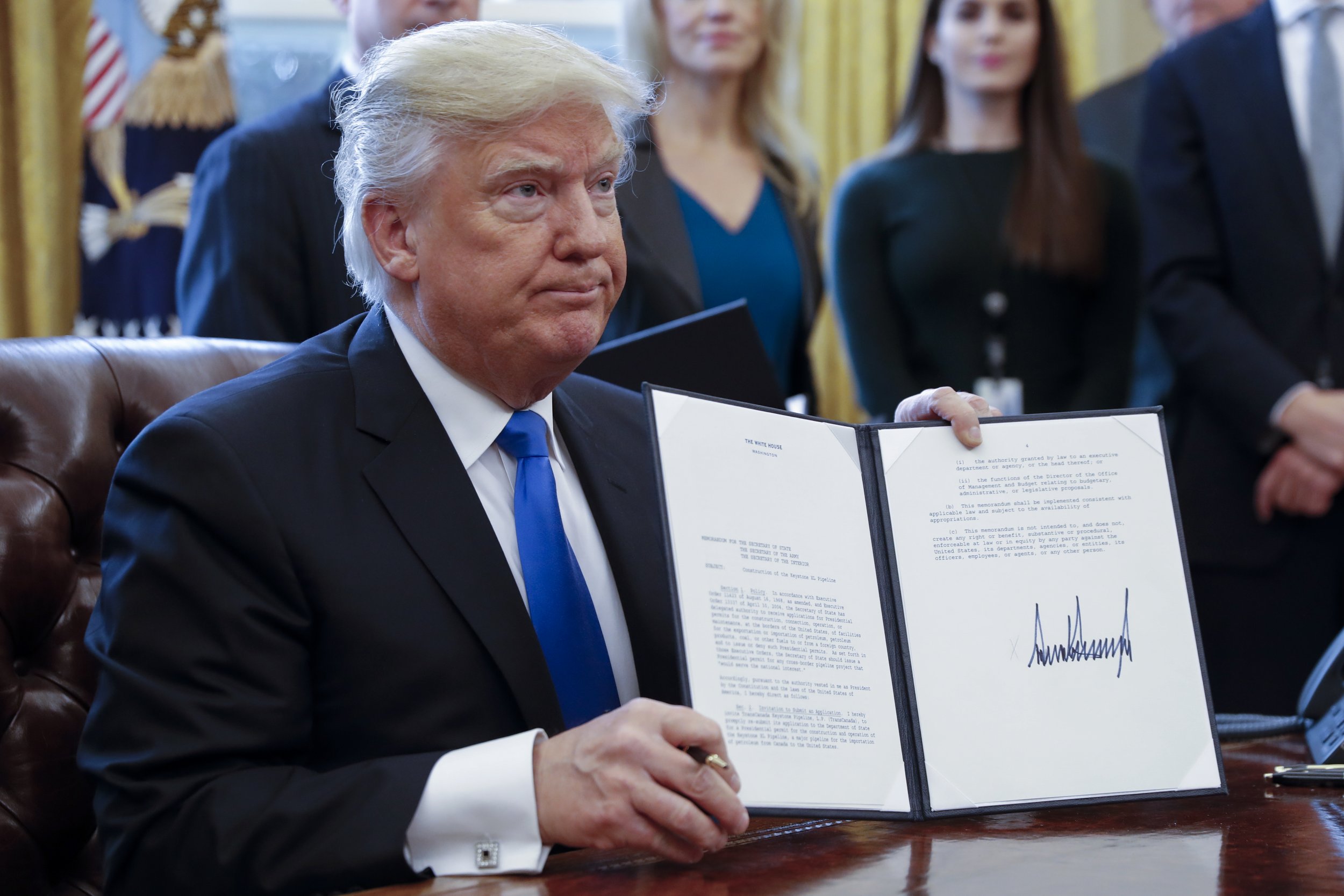
This article first appeared on the Cato Institute site.
Donald Trump's rhetoric on trade policy has been, to say the least, over the top.
The economic nationalism in his inauguration speech was particularly alarming. But there is a great deal of uncertainty about the extent to which his actual policies will reflect this rhetoric.
As an example, look at what Trump said on January 24 about requiring domestic materials (mainly iron and steel) in the construction of pipelines, and compare that to what he actually did.
First, here's what he said as he signed a presidential memorandum on "Construction of American Pipelines":
This is construction of pipelines in this country. We are–and I am–very insistent that if we're going to build pipelines in the United States, the pipes should be made in the United States. So, unless there's difficulty with that because companies are gonna have to sort of gear up; much pipeline is bought from other countries.
From now on, we're gonna start making pipeline in the United States. We build it in the United States; we build the pipelines; we wanna build the pipe. Gonna put a lot of workers, a lot of steel workers, back to work. Okay.
We will build our own pipeline. We will build our own pipes. That's what it has to deal with. Like we used to, in the old days.
That sounds very strident and forceful: We will use American steel for American pipelines!
Related: Smart negotiator? Trump flunks his first big deal
What he actually did, however, is much more nuanced. Here is an excerpt from the memorandum he signed:
MEMORANDUM FOR THE SECRETARY OF COMMERCE
SUBJECT: Construction of American Pipelines
The Secretary of Commerce, in consultation with all relevant executive departments and agencies, shall develop a plan under which all new pipelines, as well as retrofitted, repaired, or expanded pipelines, inside the borders of the United States, including portions of pipelines, use materials and equipment produced in the United States, to the maximum extent possible and to the extent permitted by law. The Secretary shall submit the plan to the President within 180 days of the date of this memorandum.
So instead of there being an immediate requirement to use domestic iron and steel in pipelines, which is kind of how it sounded when Trump made the announcement, there will be an interagency consultations process to "develop a plan" within 180 days. And under this plan, domestic iron and steel is to be used "to the maximum extent possible and to the extent permitted by law."
The "to the extent permitted by law" qualification is particularly relevant, as it could be interpreted to mean that the requirement would not apply if it violated international trade obligations, such as the non-discrimination rules in the World Trade Organization (WTO).
That is, the requirement that is actually applied after the plan is developed might exempt all countries who are members of the WTO. If such an exemption were used, the impact of the requirement would be negligible, since most countries are WTO members. (On a trade specialty blog I run, I explained why this kind of domestic content requirement would almost certainly violate trade obligations.)
The difference between the rhetoric and the possible reality here means that we still don't have a very good idea of what U.S. trade policy under Trump is going to look like.
At some moments, it seems like we are headed into uncharted protectionist territory; at others, it seems more like a continuation of existing policies, with minor modifications.
All we can do at this point is wait for concrete policy proposals and evaluate them as they come out. Hopefully the reality will not match the rhetoric.
Simon Lester is a trade policy analyst with Cato's Herbert A. Stiefel Center for Trade Policy Studies. Before joining Cato, he worked for the trade law practice of a Washington, D.C., law firm, and also as a legal affairs officer at the Appellate Body Secretariat of the World Trade Organization.
Uncommon Knowledge
Newsweek is committed to challenging conventional wisdom and finding connections in the search for common ground.
Newsweek is committed to challenging conventional wisdom and finding connections in the search for common ground.
About the writer
To read how Newsweek uses AI as a newsroom tool, Click here.






